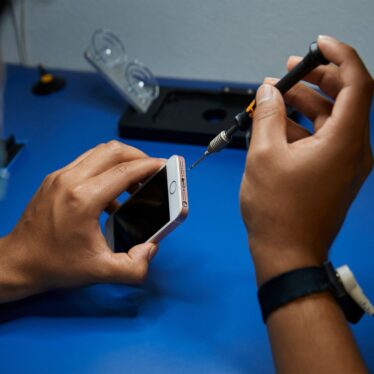Google has officially voiced support for Right to Repair (R2R) legislation. Specifically, the company supports Oregon’s SB 542, championed by State Senator Janeen Sollman (D). Although Google’s motives could be less about newfound altruism and more about shaping regulatory action that seems increasingly inevitable, “a win’s a win,” as they say in sports.
The company expressed its new R2R stance in a blog post and white paper published Thursday. “Today, we’re excited to reaffirm our support for the Right to Repair movement by releasing our first white paper on repair while endorsing proposed Oregon Right to Repair legislation that offers a compelling model for other states to follow,” the company wrote.
Google lobbied against Right to Repair legislation as recently as March 2021 when it opposed the HB21-1199 R2R bill in Colorado. It’s also on record opposing AB1163 in California. The company’s stance had already shifted before today, in line with the direction of regulatory winds. (It partnered with iFixit for self-repairs starting in 2022.) But Google suggesting its announcement today is merely “reaffirming” a value it’s always stood behind (while ignoring documented evidence to the contrary) appears disingenuous.
Google’s suggestions for regulators
Google’s language in the white paper reveals a legislation-shaping tactic. An entire section titled “Policy Perspective” breaks down the language and boundaries the company believes R2R regulations should contain.
Within this policy section of the paper is a passage about “design flexibility,” urging lawmakers not to hamstring device makers by implementing strict design codes. “Well-intentioned regulations that set specific design requirements and standards in an effort to improve repairability may have unintended consequences that inhibit innovation and inadvertently lead to bad outcomes, such as more e-waste,” Google wrote in its white paper. “Design-related policies for repair should focus on defining repairability outcomes rather than setting strict design standards.”
Another item in the policy section, “reasonable implementation period,” calls for regulations that won’t disrupt existing manufacturing schedules. “Consumer electronics operate with lengthy product development timelines, often spanning years,” Google wrote. “New regulatory measures should phase in on a sensible timeline that ensures manufacturers can meet new requirements without undue burden. Regulations should not apply to products that are already designed and launched as such measures are problematic and may have negative unintended consequences, such as creating more e-waste.”
Neither of those requests seems egregiously unreasonable — and the points about e-waste could be taken at face value — but, coincidentally or not, they do also align with Google’s business interests.
An Apple dig and… Project Ara?
Google squeezed in a dig at Apple, too. “Policies should constrain OEMs from imposing unfair anti-repair practices,” the paper reads. “For example, parts-pairing, the practice of using software barriers to obstruct consumers and independent repair shops from replacing components, or other restrictive impediments to repair should be discouraged.”
Of course, Apple is notorious for parts-pairing, the practice of digitally linking part serial numbers to the device serial, locking out third-party repair services (and leaving the people who paid them with obnoxious incompatibility warnings).
Google’s paper highlights examples from its history of supporting R2R and similar initiatives, even calling out the (cancelled) Project Ara modular phone from a decade ago as an example of projects that “push the boundaries and better understand our users’ needs for repair.” (If it had only made it to consumers.)
The paper also touts Google’s buildouts of its repair capabilities, seven years of software support for Pixels and seven years of support for hardware parts. All of this can be seen as a resounding victory for the R2R movement, even if corporations’ motives continue to be less noble than they like to let on.
This article originally appeared on Engadget at https://www.engadget.com/google-claims-to-reaffirm-right-to-repair-support-three-years-after-lobbying-against-it-205828956.html?src=rss





